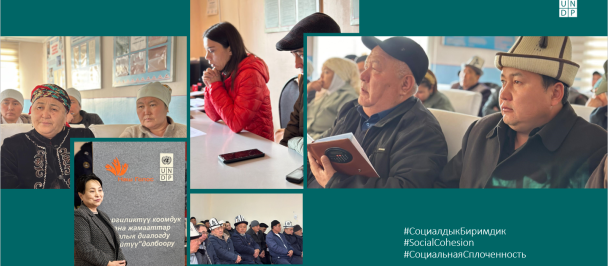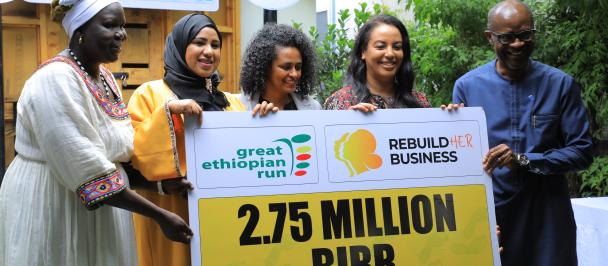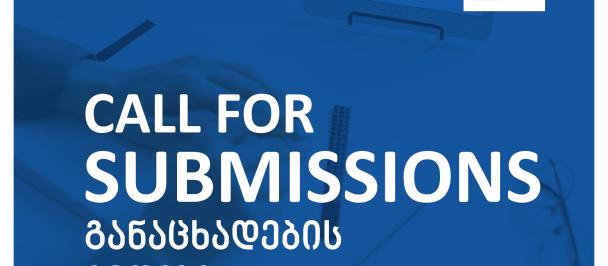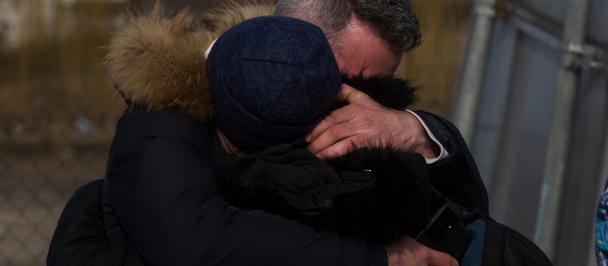Empowering Afghan Women: The Role of Conflict Management and Mediation in Protecting Women's Gains and Building Community Resilience"
Women’s Participation in Conflict Management
March 14, 2023

Marziyeh Rafiee, Community Engagement Officer, is debriefing with training participants from Ghoriyan district
A year after the power shift in August 2021, the economy of Afghanistan has nearly collapsed, and public services have been severely disrupted. This has led to widespread vulnerabilities and an increase in localized tensions, due to scarcity of resources, and a more restrictive social environment, especially for women.
Dena[1], a 19-year-old university student from Herat province, describes and shares how she feels living under the current restrictions during a Focus Group Discussion on Local Conflict Management for women.
“The women and young girls of Afghanistan have lost hope. I never imagined that this could happen to me in my life. I made plans to look for a job after completing my first university degree and even enroll for a higher degree, after saving enough money to pay for my future studies. My plans and hopes have been shattered. I am left grappling with a bleak future not knowing what will happen to me. As a young, educated woman, staying at home doing nothing is frustrating and depressing especially when my movements, access to job opportunities, and freedom of association are restricted.”
In the context of the restrictions against women, it is essential to identify ways ensuring that Afghan women can continue to shape the future of their country, and that their gains are protected to the extent possible. UNDP, through its flagship ABADEI project, provides conflict mediation and dialogue facilitation training workshops, which are implemented by its NGO partner, the Danish Refugee Council. This initiative seeks to empower and build the capacity of peer-to-peer networks, local community structures, traditional and religious leaders, women, and youths on conflict management processes as well as supporting traditional peacebuilding mechanisms (shuras).
Empowering women and girls to participate in conflict management processes is essential for achieving lasting and positive peace. Women bear the greatest brunt during conflict and therefore their participation can help ensure increased local ownership of conflict management process and its outcomes. It is also a way of engaging women in local and community affairs in an environment in which they otherwise face severe restrictions.
The workshops aim to enhance participants' skills in managing localized or inter-personal conflicts peacefully by focusing on improving existing skills, such as grassroots conflict management mechanisms, while also providing additional skills and tools. These include developing community safety plans, mapping community resources and assets, and identifying joint visions for how youth see their future situation. Additionally, participants will learn how to contribute to improvements for their own communities and what initiatives they can undertake to work towards achieving these goals. The training provides a safe space for participants to share experiences and perspectives on issues of concern and ways to manage them effectively. To ensure continued support, regular follow-up meetings will be conducted with participants to discuss any conflict management issues they may be dealing with.
Through this training, women can enhance their status in families and communities by learning skills to address conflict, as Dena's own experience shows. After attending conflict mediation training in Herat, Dena has been involved in mediating family conflicts between her older siblings and relatives who had longstanding personal differences that affected their relationships.
“I used the skills that I received from the training offered by ABADEI to resolve a family conflict. This was a huge success for me, and my father appreciated the effort. He even requested me to mediate another conflict between my uncle and his wife. Due to my repeated successes, I have received encouragement, acceptance and trust among family and community members as a mediator among my peers. I am really excited about my elevated role in the family and look forward to supporting my community to manage future conflicts and contribute to peaceful coexistence in the community.”
ABADEI is UNDP's flagship development programme in Afghanistan - a comprehensive strategy to address poverty in all its dimensions. The ABADEI programme supports basic human needs, and complements short-term humanitarian life-saving assistance by safeguarding livelihoods and strengthening community resilience. UNDP implements the ABADEI strategy across all regions and provinces of Afghanistan, including in communities which are difficult to reach, and ensuring the most vulnerable are not left behind. Gender is a cross-cutting issue across ABADEI programming, and women are supported across all areas of intervention.
In 2022, UNDP, working with its partners on the ground, including DRC, carried out various workshops to promote social cohesion, including conflict mediation sessions, youth engagement and community dialogues where community members can gather and share their concerns about issues that could potentially cause conflicts. In total they have reached 524,444 individuals. Among these, 76,718 were women community members.
[1] The name was changed to ensure the anonymity of the interviewee.

 Locations
Locations



